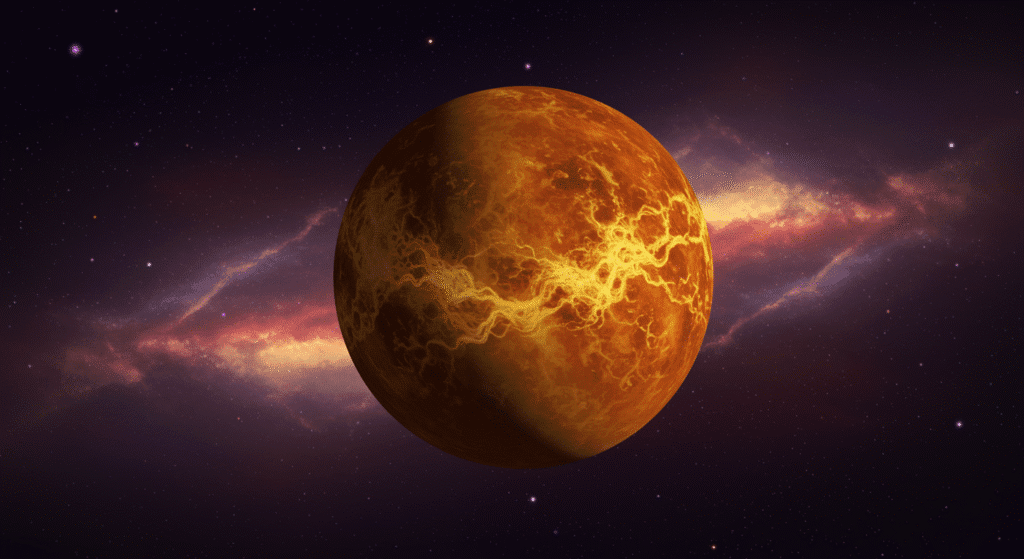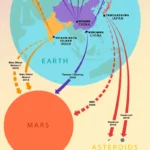When Stephen Hawking warned that climate inaction could push Earth “toward becoming like Venus,” he used a dramatic image to make a political point: planetary habitability can be fragile. The comparison is rhetorically powerful — and useful — but it’s not a literal scientific forecast. Recent planetary science and the IPCC’s climate assessments help us read Hawking’s warning with both urgency and nuance: the Earth is at real risk of severe, possibly irreversible change, yet a literal, Venus-style runaway greenhouse driven purely by CO₂ is considered unlikely for Earth’s orbit. Live Science+1
What Hawking actually said — and why he said it
Hawking’s Venus line (widely reported in 2017–2018) was meant to jolt policy — to stress that decisions on emissions, land use, and treaty commitments determine the long-term habitability of our planet. He framed the risk in planetary terms to make clear that the stakes are existential for many communities and ecosystems. Readers should treat the statement as urgent advocacy backed by plausible scientific risk, not a literal timeline predicting a molten Earth within decades. Live Science+1
Venus: a cautionary counterfactual, not a direct template
Venus is our closest example of a planet that ended up extremely hot and hostile. But recent Venus research shows it likely followed a complex evolutionary path shaped by early volatile inventory, solar flux, and interior/outgassing history — factors that differ importantly from Earth’s. Some new studies even suggest Venus may never have hosted long-lived oceans, undermining a simplistic “Earth heats into Venus” narrative. In short: Venus is an instructive warning, but not a simple what-if model for Earth. SpringerLink+1
The science of “runaway greenhouse” and why collapse to Venus is unlikely
A true runaway greenhouse—where oceans evaporate, water vapor amplifies heating, and the planet ends in a new extremely hot equilibrium—is physically possible, but the radiative-transfer calculations for Earth at its current orbital distance make a full runaway from anthropogenic CO₂ alone unlikely under mainstream models. That doesn’t make our situation safe; it means the catastrophic literal Venus outcome is a low-probability tail, while many other high-impact but less extreme outcomes remain plausible. Recent modeling work and reviews reach the same conclusion: runaway is physically interesting, but the immediate policy concern is tipping points and long-term committed warming. arXiv+1

The real, realistic danger: tipping points and irreversible harm
This is the practical core of Hawking’s message. The IPCC and climate researchers warn about tipping elements — Greenland and West Antarctic ice-sheet collapse, Amazon dieback, permafrost carbon release — which could lead to meters of sea-level rise, major regional climate shifts, and cascading socio-ecological collapse. These outcomes would be catastrophic for modern civilization even if they aren’t Venusian in the planetary-physics sense. The policy lesson is clear: low-probability, high-impact tail risks deserve urgent mitigation. ipcc.ch
Policy translation: what “avoid Venus” looks like in practice
Reading Hawking’s metaphor practically means: (1) accelerate deep emissions cuts to keep greenhouse forcing low, (2) protect and restore ecosystems that buffer climate feedbacks, (3) invest in carbon removal and resilient infrastructure, and (4) fund research on Earth system tipping mechanisms. Treat planetary habitability as an engineering-scale problem where delay multiplies cost and risk. The biggest moral error would be to ignore feasible steps that reduce long-term risk. ipcc.ch
A final take — humility plus urgency
Planetary science invites humility: planets can diverge in surprising ways. But humility should sharpen — not dull — urgency. Hawking’s Venus image is valuable because it forces people to imagine the worst and to choose differently. The correct response is both scientifically informed caution and immediate policy action. The literal Venus outcome is unlikely; the dangerously changed Earth outcome is avoidable — if we act decisively. Space+1
Further reading (key sources)
- LiveScience — Hawking’s remarks & context. Live Science
- IPCC AR6 Synthesis / Summary for Policymakers (tipping points and risk). ipcc.ch
- Space.com — overview of runaway greenhouse and Venus lessons. Space
- The Habitability of Venus (Space Science Reviews, 2023) — review of Venus evolution. SpringerLink
- Recent Venus cloud / habitability review (arXiv, 2025) — up-to-date overview. arXiv











